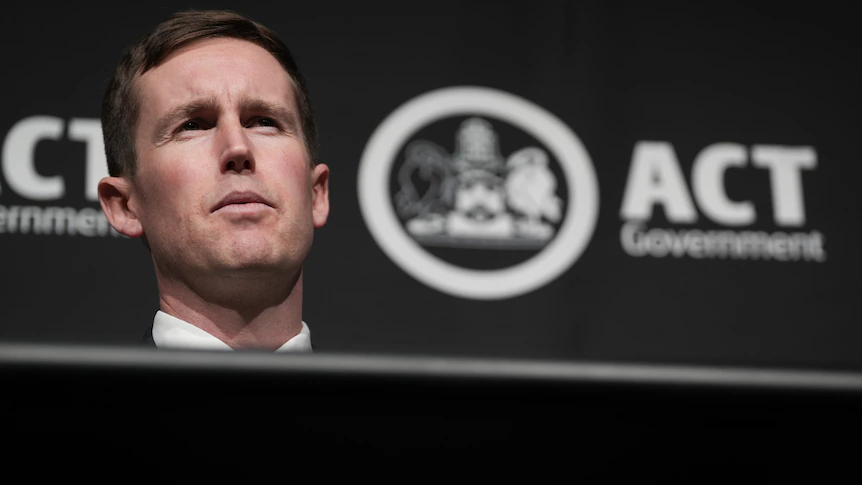By Charlotte Gore
The ACT government has slashed its proposed health levy from $250 to $100 for residential ratepayers after striking a deal with the Greens.
The levy was unveiled in the ACT budget last week and was to be attached to rates notices every year until 2029-30, bringing in an extra $205 million over four years to help pay for health services.
But the ACT Greens said they wouldn’t support what the party called an “unfair and regressive tax”.
After days of negotiations, the levy has now been reduced to $100 for residential and rural property owners, but will remain at $250 for commercial properties.
Treasurer Chris Steel said the agreement followed constructive discussions with the ACT Greens about revenue measures in the 2025-26 budget.
“The levy will raise necessary revenue to fund record investment in Canberra’s public health system, which now accounts for more than 33 per cent of the ACT Budget,” Mr Steel said.
The revised levy has only been agreed to for one year, and will be reviewed annually.
To offset the lower levy, Mr Steel said the government would introduce a higher payroll tax rate of 8.75 per cent for large businesses with national payrolls exceeding $150 million. The new rate is expected to come into effect from January 1.
“This outcome reflects the government’s commitment to working collaboratively to ensure vital services are funded responsibly, without the need for deep cuts to public services or infrastructure investment,” he said.
‘A great win for Canberra’
ACT Greens leader Shane Rattenbury said his party could not support the levy in its original form.
“Through these negotiations we recognise it is vital for government to raise the revenue that is needed to pay for key community services in this territory,” Mr Rattenbury said.
He said the flat levy was unfair but there had been “significant pressure” to reach an agreement quickly, with the rates determination having to be signed off by midnight on June 30.
“There needed to be a decision today to enable the government to put that determination in place in the legislative time frames, and so we’ve had to work quite quickly,” Mr Rattenbury said.
